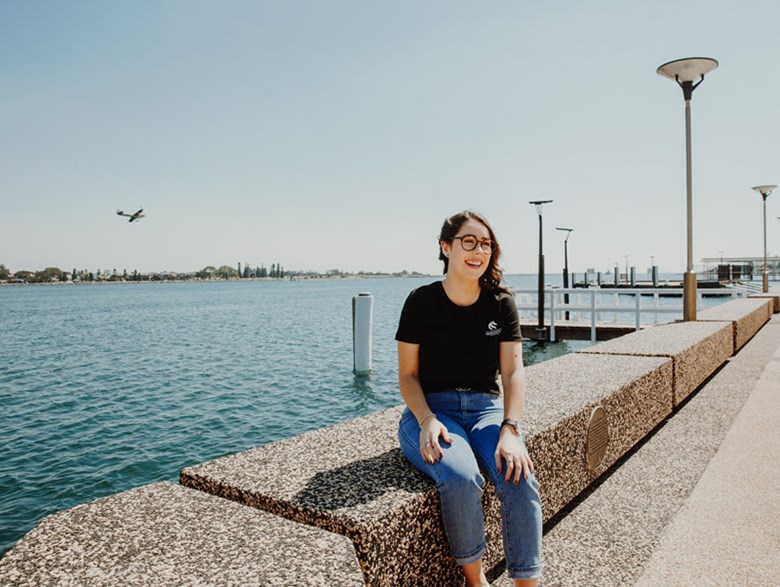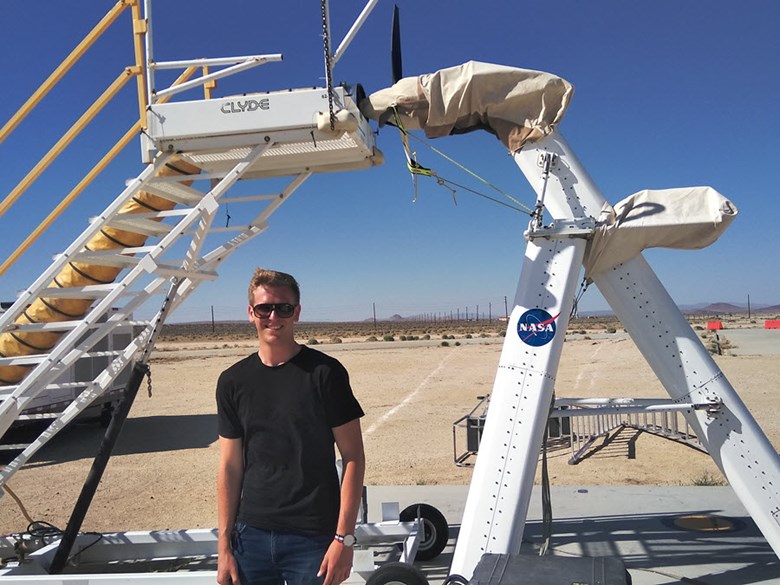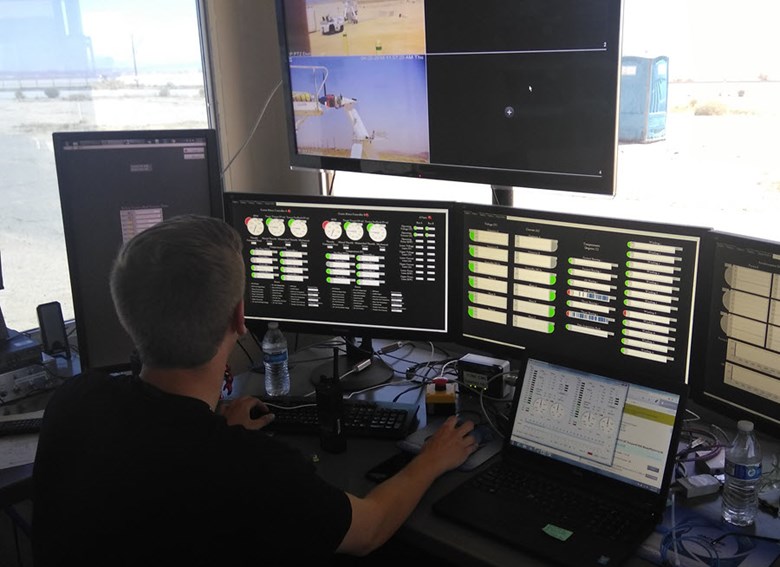Work Integrated Learning
As the V8s roll into town, students from the University of Newcastle are getting ready for some track-side learning. With practical experience a core focus for all undergraduate degrees, the University has formed a number of unique local and international partnerships to deliver hands-on learning to students. When you graduate from the University of Newcastle, you have both experience and a qualification. Here’s how.
All degrees come with real world experience
Work Integrated Learning is an authentic way students can gain hands-on experience and be ready for the real world. Whether it’s through an internship, practical placement or project-based learning, students can apply what they’ve learnt in the classroom into workplace. See some examples here of practical experiences and what it has meant to students.
To gain a better understanding of just what Work Integrated Learning (WIL) is all about we caught up with Bachelor of Communications student Jordyn Rankin, trackside, to chat about her upcoming placement at the V8 Supercars.
How did your placement with the V8 Supercars all come about?
My Public Relations tutor told me about the Uni's sponsorship of the V8 Supercars and that they were offering students WIL opportunities to gain real-world experience through the event. So, I expressed my interest and got in touch with the Supercars team and it took off from there.
Was the V8 Supercars the only placement opportunity available or did you have other options? If so what made you choose this V8s?
Throughout the year we receive emails letting students know of work and/or internship opportunities around Newcastle and the Hunter. The V8 Supercars sparked my interest as it's one of Newcastle’s biggest events, and something I wanted to be a part of. It is also my last opportunity as a student to undertake an internship like this one and I have never done anything like the V8s before.

Can you tell us what kind of things you will be doing during your placement at the V8s?
At our most recent briefing we were told that each student will be assigned a mentor for the day and as a PR student I will be working one-on-one with the Supercars team to learn the fundamentals of communicating major event updates, community announcements and points of interest to educate residents, racegoers and stakeholders.
What does being a part of the V8 Supercars provide you, value-wise, in regards to your studying experience?
It will provide me with the knowledge on how event management works and gain more insight into the role the PR team plays in such a large-scale event. Event management is definitely something I am interested in pursuing, so being able to put an event like this on my resume will definitely be of value to my future career.
What are you most looking forward to in regard to your time at the Supercars?
I’d be lying if I said that I wasn’t looking forward to the hot lap we get to do around the Newcastle 500 course with one of the drivers the morning of the event. However, I am also looking forward to being a part of an exciting, fast-paced environment, engaging with racegoers and producing content alongside an experienced PR team.
Moving across to the other side of the globe, Newcastle Intern of the Year (2018) recipient Sam Parker also provided some fascinating insights into his WIL experience which he undertook at NASA.
An internship at NASA sounds like an incredible opportunity, how did this opportunity come about?
As a part of my Bachelor of Electrical Engineering, I am required to undertake a minimum 12 weeks of industry experience which I did at NASA Armstrong Flight Research Centre in Los Angeles, California.
I have always wanted to work at NASA so I thought I would apply. I had very little expectations of getting the internship, but I went through the online application process and did a phone interview. Soon after I received a call saying ‘we’ll see you in January 2018’, which was mind-blowing!

How involved were you in the day to day workings of NASA?
I was really involved, I was a part of the testing team for the 16 week internship and it was set out so that I could make of it what I wanted. I could have just done documentation all day, but because I wanted to make the most of such an incredible opportunity I’d arrive before sunrise to set up and start testing early.
What did a normal day of work look like for you?
One of my tasks was to write software that was useful for our testing which was a great opportunity for me to take initiative and say there is this gap in the testing that needed to be filled. I felt like I was drawing on my University knowledge every single day, applying things that I’d learned way back in first year.
They are still using the software I wrote for the project, so that is really rewarding, to be able to put all my learnings and skills into practice at the highest international level.
Did the internship help to cement the direction of your career?
I had an idea that this is what I wanted to do but this was a chance to practice it at the highest level, and hone my skills, not just my technical skills but my professionals skills as well, like how do I communicate which the Chief Scientists of NASA on a day to day basis and how do I conduct myself in meetings which was invaluable.

Sounds like it could have been quite an intimidating environment to work in, how did you find the team and overall learning experience?
It was a little intimidating, but the people were fantastic, it was one of the best places that I could have hoped to have worked at. The Chief Scientist would invite all the interns around to his house for lunch, and he would give a lunchtime lecture every week. They take really good care of the interns and that meant that I had the confidence to engage with people at all levels.
You plan on furthering your studies in the field of Brain Computer Interface Neuroprosthesis, which is quite a different career path from working at NASA, how has the internship assisted you with your career goals?
Whilst it is very different career it’s also very similar, it’s all the same electrical fundamentals as the area of prosthetics, that is high tech advanced prosthetics which are controlled by the human brain. The same analytical techniques that I used at NASA can be applied to the human brain to try and decode motoring tension in order to have the motor prosthetic do what you would like it to do.
The internship at NASA gave me a unique prospective into analysing the brain, a fresh perspective that I hope will help in tackling some of the obstacles that we have in the field at the moment.
You are in your final year of study, what are the plans for next year?
I am currently applying to MIT, Brown, Pittsburgh and a few other schools so I am waiting to hear. Brown University in Providence, Rhode Island, would be my first option because they have a stronger brain computer interface program. So I’ll see how I go, I hope to know in the coming months.